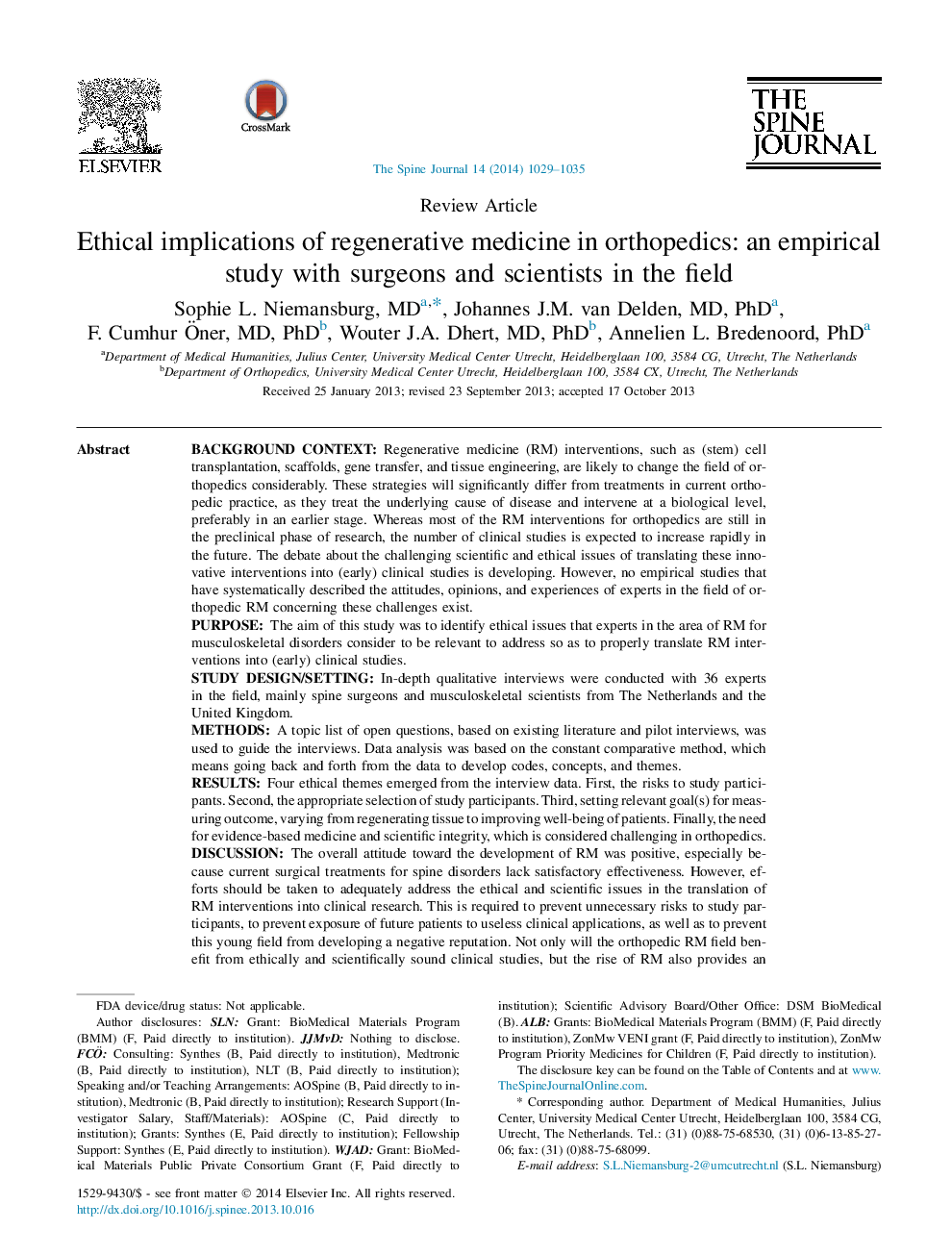| کد مقاله | کد نشریه | سال انتشار | مقاله انگلیسی | نسخه تمام متن |
|---|---|---|---|---|
| 4097781 | 1268598 | 2014 | 7 صفحه PDF | دانلود رایگان |
Background contextRegenerative medicine (RM) interventions, such as (stem) cell transplantation, scaffolds, gene transfer, and tissue engineering, are likely to change the field of orthopedics considerably. These strategies will significantly differ from treatments in current orthopedic practice, as they treat the underlying cause of disease and intervene at a biological level, preferably in an earlier stage. Whereas most of the RM interventions for orthopedics are still in the preclinical phase of research, the number of clinical studies is expected to increase rapidly in the future. The debate about the challenging scientific and ethical issues of translating these innovative interventions into (early) clinical studies is developing. However, no empirical studies that have systematically described the attitudes, opinions, and experiences of experts in the field of orthopedic RM concerning these challenges exist.PurposeThe aim of this study was to identify ethical issues that experts in the area of RM for musculoskeletal disorders consider to be relevant to address so as to properly translate RM interventions into (early) clinical studies.Study design/settingIn-depth qualitative interviews were conducted with 36 experts in the field, mainly spine surgeons and musculoskeletal scientists from The Netherlands and the United Kingdom.MethodsA topic list of open questions, based on existing literature and pilot interviews, was used to guide the interviews. Data analysis was based on the constant comparative method, which means going back and forth from the data to develop codes, concepts, and themes.ResultsFour ethical themes emerged from the interview data. First, the risks to study participants. Second, the appropriate selection of study participants. Third, setting relevant goal(s) for measuring outcome, varying from regenerating tissue to improving well-being of patients. Finally, the need for evidence-based medicine and scientific integrity, which is considered challenging in orthopedics.DiscussionThe overall attitude toward the development of RM was positive, especially because current surgical treatments for spine disorders lack satisfactory effectiveness. However, efforts should be taken to adequately address the ethical and scientific issues in the translation of RM interventions into clinical research. This is required to prevent unnecessary risks to study participants, to prevent exposure of future patients to useless clinical applications, as well as to prevent this young field from developing a negative reputation. Not only will the orthopedic RM field benefit from ethically and scientifically sound clinical studies, but the rise of RM also provides an opportunity to stimulate evidence-based practice in orthopedics and address hype- and profit-driven practices in orthopedics.
Journal: The Spine Journal - Volume 14, Issue 6, 1 June 2014, Pages 1029–1035
